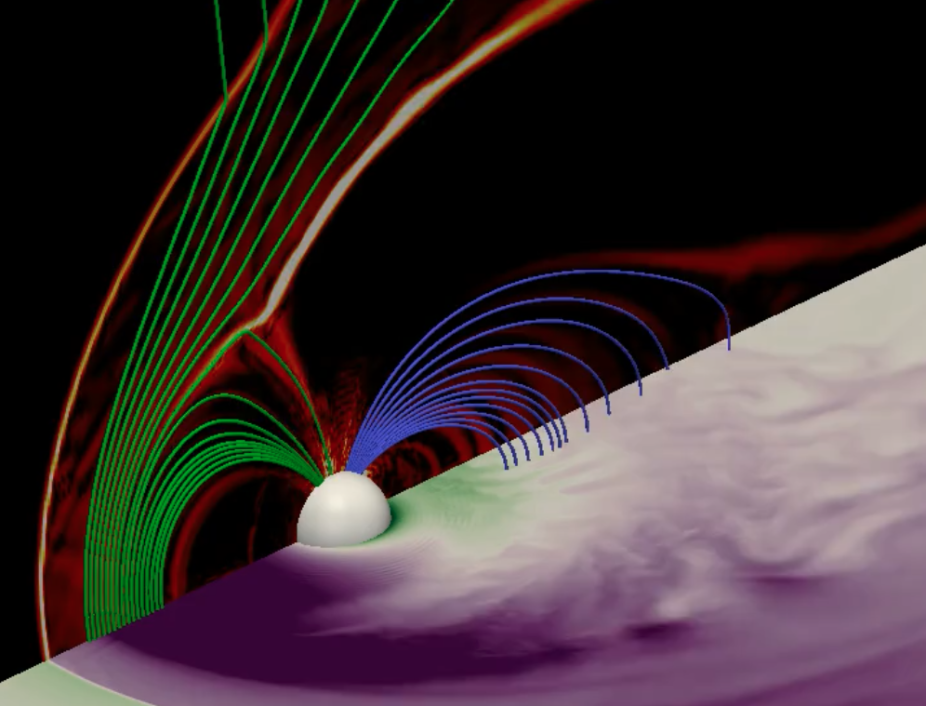From numbers to images: Visualizing space weather
How can we see what happens far beyond what our eyes can process? Scientists are able to use data to paint a picture of massive eruptions on the Sun propagating through interplanetary space and their impact on Earth. The effects of space weather on our society are far reaching and can range from producing beautiful phenomena such as the aurora as well as disruptions in our communications and power grids.
Join us in an NSF NCAR Explorer Series conversation with NSF NCAR scientist and Center for Geospace Storms Deputy Director Dr. Michael Wiltberger to discuss how we can take enormous amounts of data produced by space weather simulations and convert them into images and visualizations that help us understand the dynamics of the near Earth space environment.
Michael Wiltberger
Dr. Michael Wiltberger is the Deputy Director of the High Altitude Observatory (HAO) at NSF NCAR and the Deputy Director of the Center for Geospace Storms (CGS). Prior to that he served as the Geospace Section in the Atmospheric and Geospace Science Division at NSF. His main area of research is the modeling of the magnetosphere and its interaction with the solar wind and coupled thermosphere-ionosphere system. Dr. Wiltberger earned his bachelor’s degree in physics from Clarkson University, Potsdam, NY, in 1993, and his PhD. in space plasma physics in 1998 from the University of Maryland, College Park. Amongst his many scientific accomplishments are pioneering work on including ionospheric outflow and the application of advanced statistical analysis in global models and ground-breaking results proving the connection between localized reconnection and, so-called, Bursty Bulk Flows in high-resolution simulations of the magnetotail. During his career, Dr. Wiltberger also has served in many important community functions, including as chair of the GEM Steering Committee, vice-chair of the AMS Science and Technology Committee on Space Weather, and as Vice Chair of the Solar Wind-Magnetosphere Interactions Panel of the 2010 NRC Decadal Survey for Solar and Space Physics.
